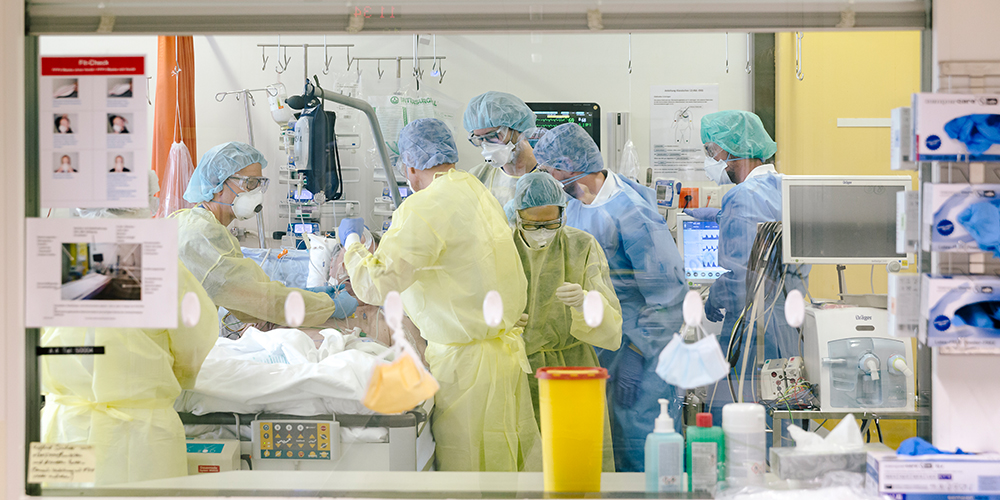
Basel study: hydroxychloroquine not effective

Basel scientists have confirmed that the malaria drug hydroxychloroquine and the HIV medication lopinavir do not work against Covid-19. The concentration of the two drugs in the lungs is not sufficient to fight the virus.
In February 2020 the University of Basel and the University Hospital Basel started to monitor a range of diagnostic means and potential treatments for Covid 19, including the use of hydroxychloroquine and lopinavir/ritonavir.
In particular, the research group investigated how the virus-induced inflammation affected the concentration of lopinavir and hydroxychloroquine in the blood.
Scientists also worked out how high the concentration of both drugs must have been in the lungs – the main infected area for Covid-19.
Results strongly suggested that it was unlikely that both drugs reached sufficient concentrations to inhibit the virus replication in the lung, a Basel University statement said on Friday.External link
WHO view on hydroxychloroquine
The study, which has been published in the Antimicrobial Agents and Chemotherapy journal, confirms the view taken by the World Health Organization (WHO). On July 4 it decided to discontinue trials of hydroxychloroquine and lopinavir/ritonavir in hospitalised patients with Covid-19 after the drugs failed to reduce mortality.
Manuel Battegay – co-leader of this study and head of the Division of Infectious Diseases and Hospital Epidemiology at the University Hospital in Basel – said that the results of the Basel study provided important pharmacological and antiviral insights to the rationale of discontinuing the lopinavir/ritonavir trials.
“In fact, they explain why hydroxychloroquine and lopinavir are not effective against the SARS-CoV-2,” the statement said.
Political debate
Hydroxychloroquine has been caught in a political debate after United States President Donald Trump promoted it, even though there was no scientific evidence that it helps against the new coronavirus.
Brazilian President Jair Bolsonaro, who on Tuesday announced that he had tested positive for Covid-19, said he was taking hydroxychloroquine. He has previously urged his government to make the malaria drug widely available and encouraged Brazilians to take it, both to prevent the disease and to treat it.

More
Coronavirus: the situation in Switzerland

In compliance with the JTI standards
More: SWI swissinfo.ch certified by the Journalism Trust Initiative





























You can find an overview of ongoing debates with our journalists here . Please join us!
If you want to start a conversation about a topic raised in this article or want to report factual errors, email us at english@swissinfo.ch.